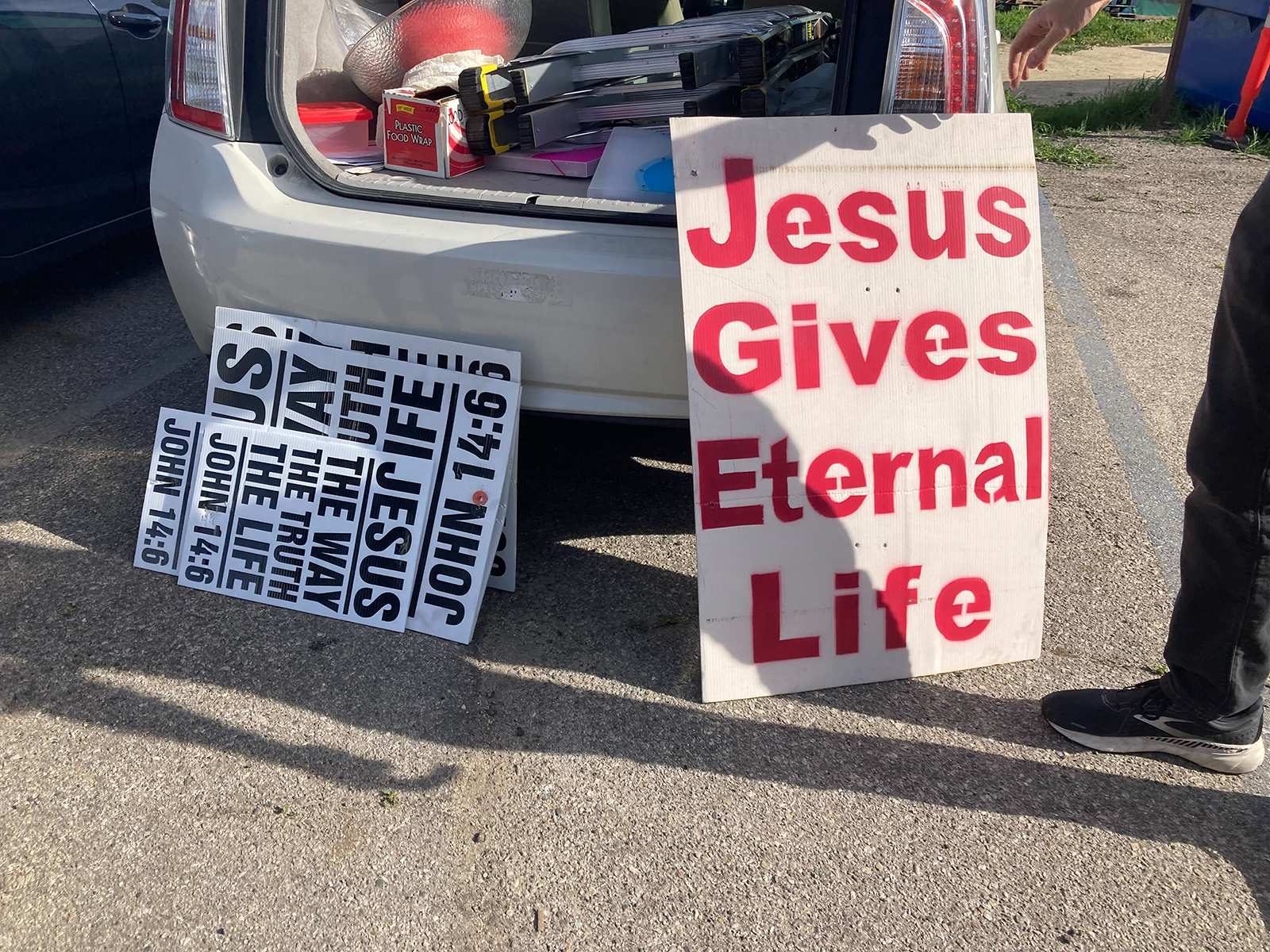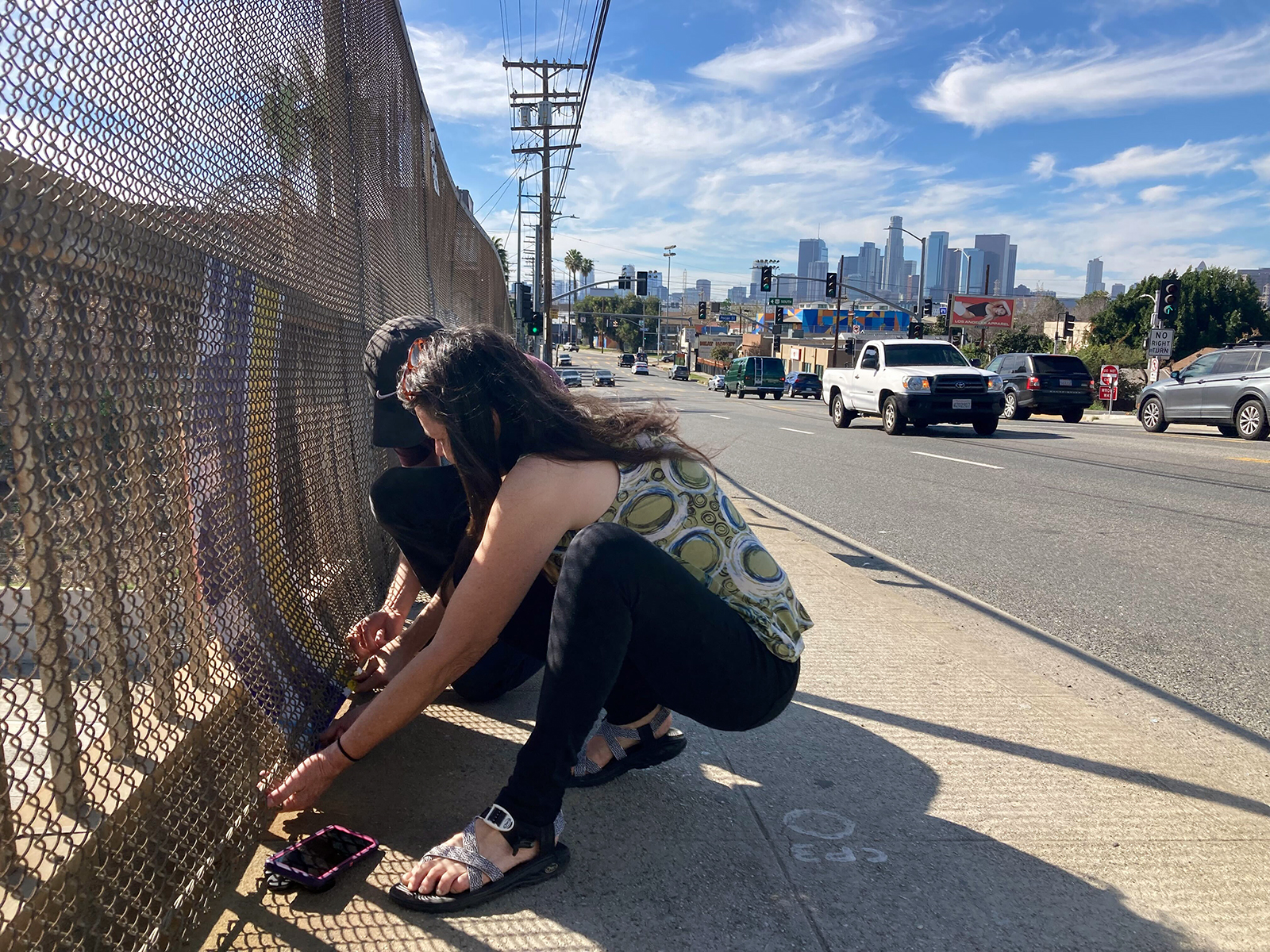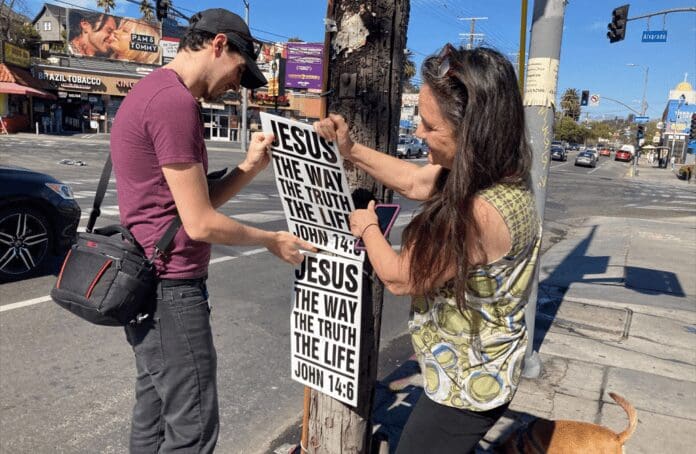Signs and banners, regardless of their content, are not allowed on California state highway bridges, fences and poles, said Michael Comeaux, a public information officer with the California Department of Transportation known as Caltrans.
“Such signs and banners could be a distraction to drivers, which would raise a safety concern,” Comeaux said, adding that Caltrans removes signage regardless of the content of the messages.

Illegally placed religious materials on public streets are removed by members of Atheists United, Feb. 19, 2022, in Los Angeles. RNS photo by Alejandra Molina
In LA, signs on the public right-of-way are illegal and city officials will remove any that are reported to the bureau of street services, a division of the public works department, a city official said.
A woman taking calls to the 311 Call Center, which connects residents to non-emergency city services, said people shouldn’t be putting up or taking down signs on the public-right-of-way. The city’s Investigation and Enforcement Division takes care of requests to remove illegal signs.
Illegal signs, according to the city website, “create the same negative perception of a community as graffiti or other forms of vandalism.” Nails and tacks placed on utility poles to place illegal signs also expose linemen to serious injury, the city said.
When it comes to religion, the city is “very neutral,” the city official added. “Our city is multicultural and therefore there are many faiths that are practiced here.”
Arlene Ríos, vice president of the Atheists United’s board of directors, finds religious signage on highway overpasses annoying, particularly because “here in Los Angeles, usually we’re stuck in traffic and we spend a lot of time in our cars.” She said people shouldn’t feel “guilted” into believing in Jesus.
“Sometimes I wonder, when I see the ‘Jesus is the Answer’ (sign), ‘Jesus is the answer to what? What Jesus?’” said Ríos, who helps organize meetups with other nonreligious Latinos in Southern California’s San Gabriel Valley.
On a recent Saturday, Clark and Christine Jones — president of Atheists United’s board of directors — met at the group’s LA office inside the regional building of the Center for Inquiry — a nonprofit that defends science and critical thinking in examining religion — to plan the driving route to take down signs they’ve been tracking.
The duo made their first stop at the intersection of Sunset Boulevard and Alvarado Street, where they easily yanked two signs quoting John 14:6 that were attached to a pole, no ladder necessary.

Evan Clark and Christine Jones of Atheists United remove an illegally placed “Jesus Gives Eternal Life” sign from a freeway overpass on Fourth Street in Los Angeles, Feb. 19, 2022. RNS photo by Alejandra Molina
From there, they drove about a mile to take down the sign nailed to the utility pole near the 101 freeway and then drove toward East LA to remove a sign declaring “Jesus is Eternal Life” from an overpass bridge. Along the way, they removed and logged other unexpected religious signage they encountered.
The “Jesus is Eternal Life” sign on the freeway bridge was trickier to remove since it was wedged between two fences. Clark and Jones slid the sign downward until they were able to yank it out. It was their last sign for the day, collecting a handful of signs in about two hours.
“We preserve public spaces as secular so that they’re welcome to all,” Clark said. “The only way for us to truly have freedom of religion is to also have freedom from religion.”
This article originally appeared here.

